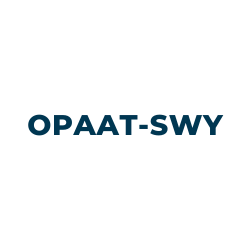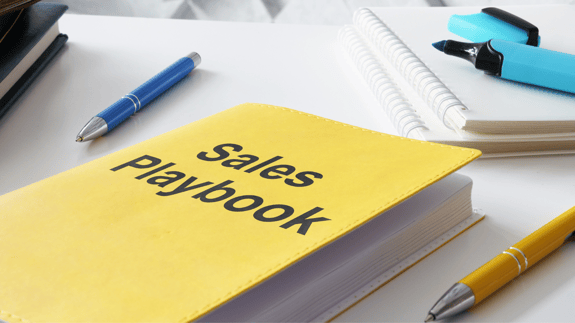As a sales professional, you're no stranger to the competitive and challenging nature of the industry. With constant changes in the market and the emergence of new technologies, it can be tough to keep up and consistently hit your targets.
This is where sales playbooks have become an essential tool for successful sales teams. A playbook provides a comprehensive guide to sales strategies, tactics, and best practices that can help sales representatives close quality deals and increase sales revenue and margins.
In this article we will guide you on the creation of a sales playbook and how to make it handy.
—--------------------------------
What Is A Sales Playbook?
A sales playbook is a detailed guide outlining your business’ sales process and strategies. It's a framework that helps you and your team stay organised, focused, and efficient in your sales approach.
Why Are Playbooks Important?
A sales playbook can help increase sales by providing a consistent framework for all reps to follow. This includes using the same messaging, templates, and tactics to engage with customers. By providing a consistent experience, sales reps can build trust with customers and increase their success rates.
Here are several of the benefits of a sales playbook:
- Consistency: A sales playbook ensures that all sales reps follow a consistent sales process and use the same messaging to engage with customers. This helps create a more streamlined and effective sales process.
- Best Practices: A sales playbook provides guidance on best practices, including strategies, tactics, and templates that have been proven to be effective. This can help reps save time and increase their success rates.
- Onboarding: A sales playbook can be especially helpful in onboarding new reps by providing a structured framework for them to learn and follow. This can help new reps get up to speed quickly and start selling more effectively.
- Sales Management: A sales playbook can also help sales managers by providing a framework for managing and coaching their reps. This includes providing a common language and set of metrics to track sales performance.
Who Are Playbooks For?
A sales playbook is a guide for anyone involved in sales or business development sales representatives, business development officers, entrepreneurs and managers. It outlines the sales process from start to finish.
How Should a Sales Playbook be Used?
A sales playbook should be a living document that is updated regularly based on feedback from the sales team and changes in the market. Here are some tips for using a sales playbook effectively:
- Keep it simple: A sales playbook should be easy to understand and use. It should provide clear guidance on what to do and when.
- Make it actionable: A sales playbook should provide specific actions and tools that reps can use in their day-to-day work. This includes templates, scripts, and best practices.
- Provide training: A sales playbook is not useful unless reps understand how to use it. Make sure to provide training on how to use the playbook effectively.
- Measure success: A sales playbook should include metrics and KPIs to track sales performance. This helps sales reps understand how they are doing and provides feedback to sales managers on how to coach and manage their teams effectively.
What’s Included In A Sales Playbook?
Here are some steps to take when creating your own personal sales playbook:
- Define your goals and target audience.
Before creating your playbook, you need to clearly understand your sales goals and target audience. What do you want to achieve in your role as a sales professional? Who are your ideal customers, and what are their pain points? Understanding your objectives and audience will help you create a playbook tailored to your needs.
- Identify your sales process.
Once you've defined your goals and target audience, you need to identify your sales process. This includes all the steps you take, from prospecting to closing a deal. Ensure to include details such as how you identify potential clients, engage with them, and track your progress. The more detailed your process, the more effective your playbook will be.
- Outline your strategies
Now that you have your sales process mapped out, you need to identify the strategies you use to close deals. This could include objection handling, negotiation tactics, and closing techniques. Be sure to include the strategies that have worked well for you in the past, but also be open to trying new techniques to improve your sales performance.
- Review and refine
Creating a sales playbook is an ongoing process. Once you've created your initial playbook, review it regularly and refine it as needed. You may find that certain strategies aren't as effective as you thought or need to add new steps to your sales process. By constantly reviewing and refining your playbook, you'll be able to stay ahead of the competition and consistently hit your targets.
One Unspoken Benefit of Playbooks
An undervalue benefit of having playbooks is the ability to help onboard new hires. Onboarding new sales reps can be a time-consuming process. A sales playbook helps new reps get up to speed quickly by providing a structured framework to follow. This includes providing clear guidance on how to engage with customers, qualify leads, and close deals. By providing a comprehensive guide, new reps can start selling more effectively and contribute to revenue growth more quickly.
Creating a personal sales playbook is valuable for any sales professional looking to improve their performance. By defining your goals, identifying your sales process and outlining your strategies, you can streamline your approach and achieve greater success. Remember to review and refine your playbook regularly to ensure it stays relevant and effective.
Did You Find This Useful? Subscribe Here For More Artiles Like This.




COMMENTS